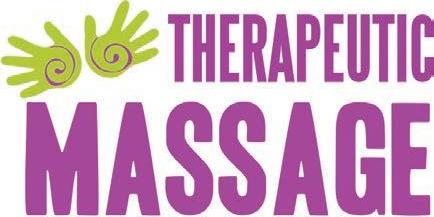
4 minute read
Emerging from a difficult year of COVID-19
The COVID-19 crisis is winding down. Covid-19 was tailor-made to push us out This time last year we were thrust into of our comfort zones. So, how do we move panic, social distancing, masking, and forward in these unparalleled stressful hopelessness. Today, another crisis is times? First, it is important for us to mainrevealed, namely mental health problems tain positive emotional health. This can that will be felt for years after the pandemic include limiting watching, reading, or lisis over. Many people are experiencing anxi- tening to COVID-19 news since this can ety, depression, loneliness and isolation. cause many of us to feel more anxiety or
COVID-19 has been stressful for all of depressed mood. We need the facts, but us. Each of us reacts to stress differently and only at regular intervals. Good information coping with it can be reduces our worries about the virus and difficult. The way misinformation can be dangerous. each of us has By supporting others, we also help ourresponded to the pandemic depends on our backgrounds, health histories, politics and worldview. Unemployment, economic loss, deaths of loved ones Dr. J. Scott Hinkle Guest Columnist selves. Psychologists call this altruism. By using our phones and social media we can check in on our neighbors who are isolated and might need assistance. Working together can help us create solidarity as we navigate our collective trauma during the pandemic. Essentially, altruism helps us to feel good by doing something good for someone and friends, grief, else. For example, I took food to a rural loneliness, isolation, and quarantine stress family that could not grocery shop due to can have extreme emotional and psycholog- being health-compromised. I felt good ical consequences. Working and schooling about helping, and they received essential from home adds to the stress equation, and assistance. those with less opportunity to work from Psychologically, we can effectively deal home feel more exposed to the virus. Our with our anxiety by taking time to relax and schools have dealt with closures and dispar- connect with friends and family on a reguities in digital access. Already stressed-out lar basis. It is stressful for us to constantly working parents have had to take on home- social distance, wear a mask and repeatedly schooling. wash our hands. Although stock piling toi-
This is not to mention that we have let paper is something we can do to help us increases in domestic violence and child feel more in control, awareness of how we abuse that will result in stress-related issues feel and doing something about it will be like PTSD. Increases in alcohol abuse are more useful. Faced with new realities associanother common response to stress. The ated with the pandemic, it is important that pandemic began as the U.S. was grappling we take a look at and do something about with a growing opioid crisis, and it will our mental health. It is OK to reach out to soon be back on the front pages as COVID- family, friends, clergy, and mental health 19 news subsides in intensity. Family funer- professionals if you need help. als have been restricted or denied due to In conclusion, we also will have emoisolation ordinances and the risk of becom- tional reactions as we begin to come out of ing infected, so we have watched our loved the pandemic. Although relieved, we will ones pass away on Facetime and Zoom. still have fears and worries about getting
People who respond more acutely to the the vaccine, continuing to monitor our stress of a crisis include older people and environments for signs of illness, and dealfolks with chronic diseases. Those with men- ing with our frustrations, sadness and even tal health concerns before the pandemic are anger regarding our past years’ experience. apt to see their symptoms increase and need Some of us might even experience guilt to continue their mental health treatment because we managed the pandemic without despite issues with obtaining psychological losing our jobs, not becoming infected and care during the pandemic. Unfortunately, not losing any loved ones. We need to keep stigma due to race, ethnicity, and age also our aperture wide open and be aware of spreads throughout our communities. psychological and emotional issues that
Threats, both real and perceived, might arise as the spring and summer increase our stress, fear, and worry, but in reveal our post-pandemic futures. It is critithe context of the virus, these responses can cal to ask for help if you are feeling conseem normal. Responding to the pandemic cerned or overwhelmed that COVID-19 is can take an emotional toll on all of us — we affecting your ability to care for yourself or can even experience secondary traumatic your family. stress resulting from exposure to our fami- (Dr. J. Scott Hinkle is a Waynesville psychololy’s and friends’ COVID-19 traumas. gist (jscotthinkle@gmail.com)




JustDoOils.com
Book online at: MassageWaynesville.com 828.456.3585
Haywood Square | 288 N. Haywood St. | Waynesville

Become A Member Today!
Contact Membership Director Caitlin Bledsoe for more info — 828-926-4831










